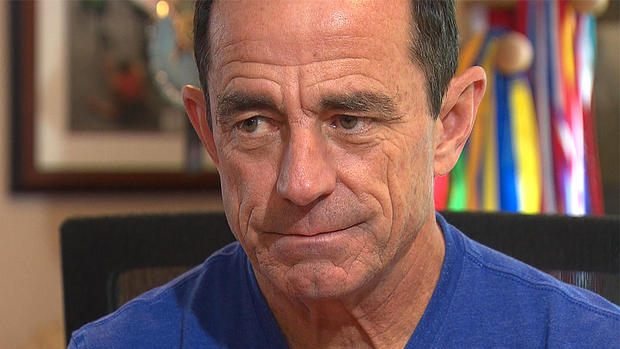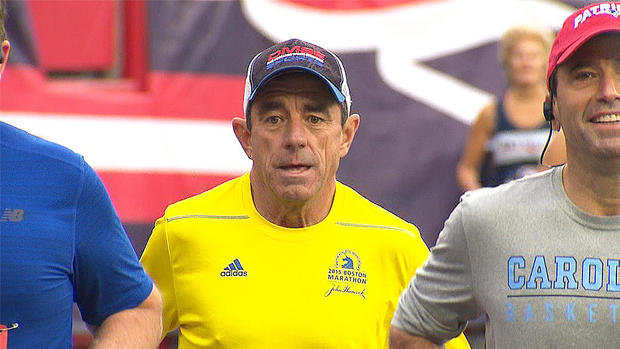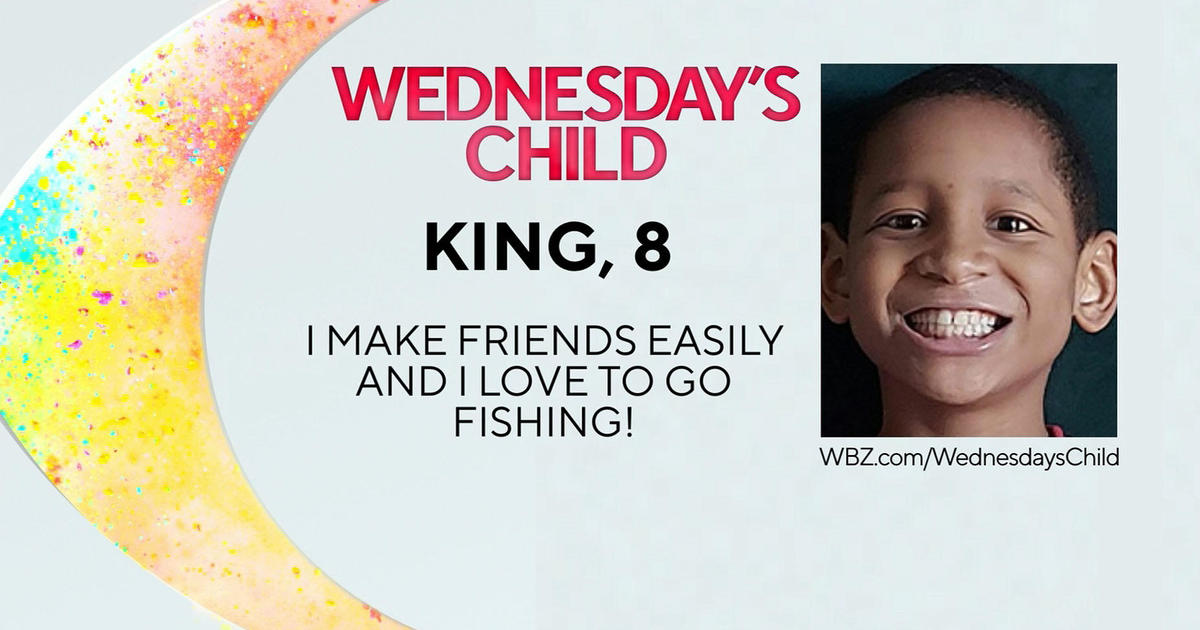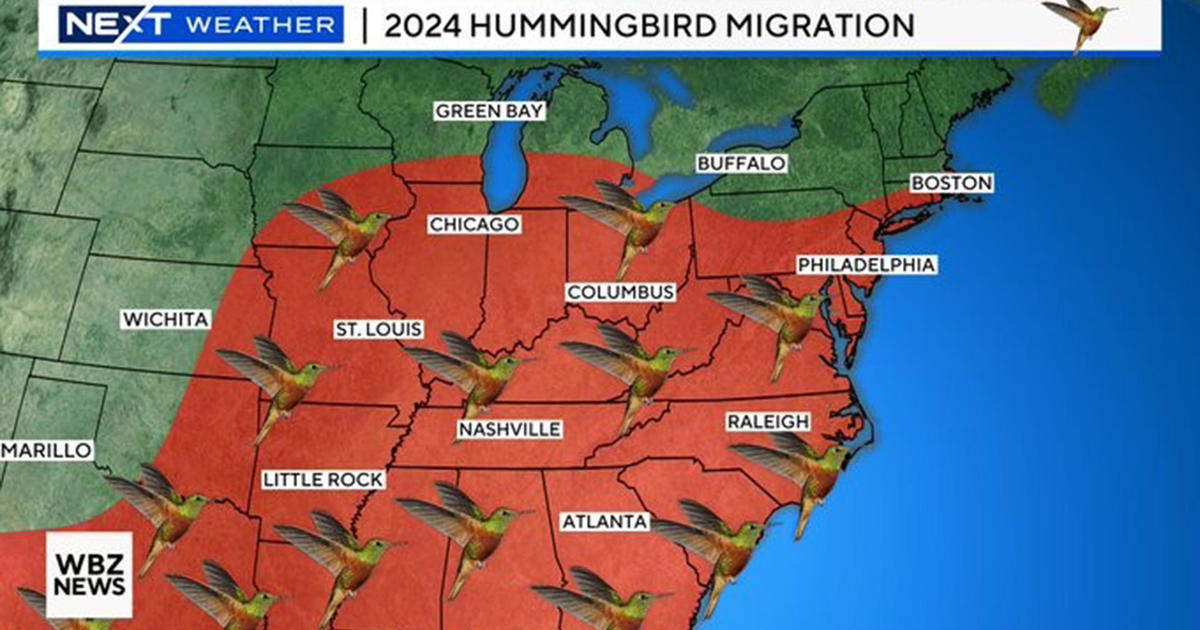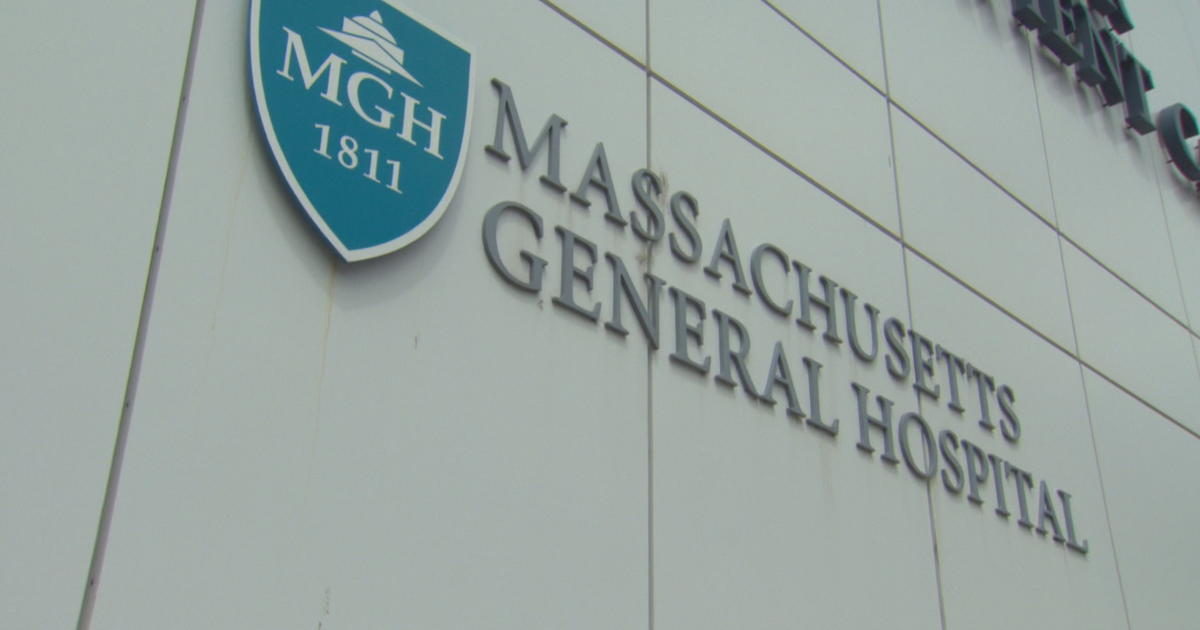'Take Action': Dave McGillivray's Message To Anyone Ignoring Symptoms Of Heart Disease
BOSTON (CBS) - There aren't many people who run their age in miles every year. Dave McGillivray does. From the time he was a boy, he's celebrated his good health and love of running with a personal challenge that obviously gets more challenging with age. His last "full" birthday run was last year: 63 miles.
This year, by necessity, he split the effort into 32 miles of running and 32 miles of biking. A feat, to be sure. But this year, he is facing a challenge for which there is no training. McGillivray, arguably one of the most fit people on the planet, has coronary artery disease and is preparing to undergo triple bypass surgery as Mass General Hospital.
"I just didn't want it. It's a ding in the armor," McGillivray explained to WBZ's Lisa Hughes in his home office. "That wasn't in the playbook."
It also wasn't entirely a surprise. "My two grandfathers died of heart failure. My father had aortic stenosis and five bypasses. My sister just had triple bypass. My brother had a stroke. And my other brother has a stent. It's like… hello! It's in the genes."
McGillivray had a scare five years ago when he started feeling chest discomfort and experiencing a shortness of breath when he ran. He worked with Dr. Aaron Baggish, founder of the Cardiovascular Performance Program at Mass General (who also treated McGillivray's father) and discovered that several of the main arteries around his heart were blocked.
The realization was devastating. But McGillivray, never one to give up, asked Dr. Baggish if the damage might be reversible. Dr. Baggish explained, straightforwardly, that it depends on the person and that it was worth a try. So McGillivray made radical changes to his diet. What did he give up? "Everything bad," he says smiling. "Any alcohol, beer, sodas. Things of that nature. I gave up red meat. People say, 'What diet are you on?' I say, the let-your-conscience-be-your-guide-diet. We all know what's good for us and what isn't."
After getting the diagnosis in 2013, McGillivray lost 27 pounds and slashed his cholesterol. "It was a major, major change in about eight months. And then, my breathing problem went away," he said.
He felt so good, he wanted to compete in the Hawaii Ironman for the ninth time. But this time, he actually had to get a doctor's note. "That hit me," McGillivray says. Initially, Dr. Baggish said no. He would only write the note if McGillivray's heart condition had improved. Tests showed it had. McGillivray's clogged arteries were so much clearer that Dr. Baggish wrote the note, McGillivray competed and believed he was on the road to recovery.
The next five years were largely trouble-free. McGillivray ran five Boston Marathons and countless other races (he tries to run every day) and even took on the World Marathon Challenge. That's seven marathons on seven continents in seven days. He returned from that whirlwind adventure in early 2018. Within weeks, he began to experience trouble breathing again and immediately feared the worst. An angiogram in the summer of 2018 validated his fears. One of his arteries was 80% blocked and other, less severely blocked arteries, were also clogged.
He had three choices: do nothing (not really an option because it would mean his active lifestyle was over), a stent (he didn't know enough about the procedure to have full confidence it would work) and triple bypass surgery. The final option, he says, was the best choice. McGillivray goes in for surgery on October 12, 2018.
By now, he explains, he passed through the stages of grief.
Denial. ("Can we try this again?)
Anger. ("I did all the right things!")
Bargaining. ("Going in to meet the heart surgeon, I was going to…negotiate with him… Is there another option?"
Depression ("I've skipped it.")
Acceptance. ("Imagine what you can accomplish with clean arteries!")
McGillivray says he is grateful for his second chance. He has always believed that you can't fix something if you don't know what's wrong. And too often, he says, athletes—in particular—ignore warning signs of injury or disease because they have become conditioned to power through it. Enduring is part of their identity. "I know at least seven almost-world class runners, friends of mine, who went for a run one day and never came home. They had heart illness and didn't know it or knew and didn't do anything about it."
His overriding message to anyone experiencing shortness of breath, chest tightness or any sensation that doesn't feel "right?" TAKE ACTION. He wants his experience to serve both as a cautionary tale and a reminder that we can't outrun our genetics. It's not selfish to take care of yourself. On the contrary, he says, it's the right thing to do for the people you love.
Web Extra: Dr. Baggish On Warning Signs Not To Ignore
"If you take care of yourself, you put yourself in a position where you can help other people…If you're not going to do it for yourself, do it for everyone else." He adds, "In a couple of hours…you can find out if there's something seriously wrong or not. It's best to know so you don't find out the hard way."
Dr. Baggish, an athlete himself, adds, "If your body's telling you something's different; if there's discomfort that comes with exertion and goes away with rest, that's when talking to a doctor should be your first priority." He says most physically fit people are "absolutely blown away" when they find out they have heart disease. "If you have risk factors—a family history of heart disease, high blood pressure, high cholesterol…it can catch up with you," Baggish says.
But the doctor is quick to point out that the benefits of a healthy diet and exercise are immense. "Exercise is the single best way to stay healthy," he says.
McGillivray knows he will have to slow down after the surgery, at least temporarily. He is a married father of five who says his number one priority is getting healthy for his family. And yes, he has asked the surgeon whether he might be strong enough to run next year's Boston Marathon. "He looked at me and said, 'I'd be really disappointed if you didn't.' That solidified it for me…it's OK. Life doesn't end. He didn't say yes. He didn't say no. He just had an intuition based on my level of fitness and my determination to put it all back together again that I could, possibly, toe the line in Hopkinton in April of next year. So, I'm hopeful."
